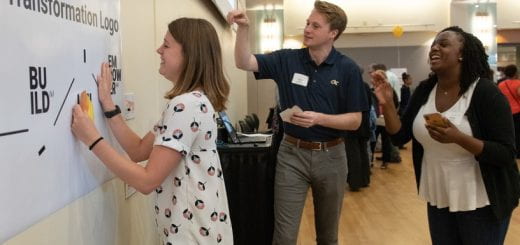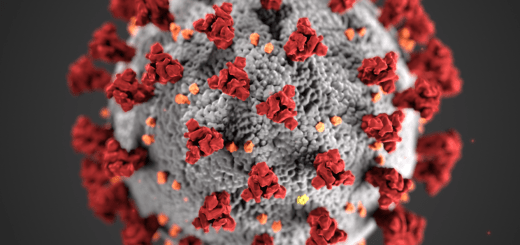2025-2026 Provost Teaching and Learning Initiatives

2025-2026 Initiatives
The Center for Teaching and Learning is pleased to announce twelve new Provost Teaching and Learning Initiatives addressing the discipline-specific priority needs of all seven colleges at Georgia Tech.
Building an AI-Assisted Online Course for the College of Lifetime Learning
Eunhye Flavin, Abeera Rehmat, and Jonna Lee, CEISMC/C21U
College of Lifetime Learning
The College of Lifetime Learning’s first graduate degree program is set to launch in 2026. Through this initiative, faculty from CEISMC and C21U will undertake a design-based research study to develop, pilot, and evaluate a rigorous, research-informed foundational course for the program. The course will leverage SocraticMind, an AI learning platform, to engage adult learners in real-world scenarios via experiential, flexible, and scalable online instruction. By incorporating SocraticMind into the course, the College of Lifetime Learning aims to discover how AI-enabled platforms can provide real-time feedback to adult learners as well as the impact of such platforms on learning outcomes and engagements.
Early Experiential Learning in CSM Program
Alex Moutaftchieva, School of Building Construction
College of Design
The College of Design recognizes a gap between theoretical skills and experiential learning among Construction Science and Management students. While theoretical skills are developed in the classroom, students often will not gain a big-picture understanding of those skills until they participate in an internship – which can vary in quality and consistency. This initiative will bridge that gap by developing an experiential learning project that introduces students to a comprehensive understanding of construction management from the very start of the curriculum. In addition, the curriculum will engage students in meaningful field trips to industry partner sites.
Enhancing the Undergraduate Thesis Research Communication Curriculum
Courtney Hoffman, School of Literature, Media, and Communication
Ivan Allen College of Liberal Arts
Student interest and demand in undergraduate thesis research communication has increased, outstripping the current instructional capacity. In order to meet this need, LMC 4701 Research Proposal Writing and LMC 4702 Undergraduate Research Thesis Writing curriculum will be redesigned for a multi-mode, multi-section, multi-instructor framework, including high-capacity sections. Faculty training materials will be developed for these new courses. In addition, the team will develop a research communication workshop series which will further support student competence in research communication strategies.
Go Scheller, Be Stellar: Transforming Business Learning through Generative AI
Zhaohu (Jonathan) Fan, Daniel Yue, and Marius Niculescu
Scheller College of Business
The Scheller College of Business aims to create a modern, AI-fluent business curriculum. This initiative supports that college-wide goal by designing and implementing AI-powered teaching tools for Georgia Tech’s undergraduate and graduate business programs. The initiative supports Scheller Ready by embedding real-world, AI-powered tools into the classroom; it also supports Scheller Next by helping faculty integrate generative AI into core and selective courses. The project includes structured faculty development and resource sharing, with workshops, course templates, and curated teaching agents.
Immersive Music and Media Art: A Curriculum at the Intersection of Art and Technology
Henrik von Coler, School of Music
College of Design
This initiative will develop curriculum for a two-course sequence immersing students in the intersection of science, technology, and the arts; through these courses, students will gain profound knowledge in the field of complex media systems. The classes will focuses on two main concepts from the fields of immersive music and media art: installations and performance. In the first class, students will install immersive multimedia systems at Underground Atlanta. In the second class, students will realize a composition or performance for a professional soundsystem at The Goat Farm. They will also produce the live performance, The Totality of Blackness, with Christina Wheeler, an LA/Berlin based composer and performer.
Integrating AI-Driven Collaborative Learning Tools in High-Enrollment Computer Science Courses
Rodrigo Borela and Nimisha Roy, School of Computing Instruction
College of Computing
The College of Computing faces ongoing challenges as they support a growing population of students with diverse academic backgrounds, including transfer students and non-majors. High-enrollment courses limit individualized instruction, making it difficult to identify and assist struggling students early. To address this, the team developed and piloted a GenAI-powered learning environment that provides tailored feedback, error analysis, and personalized practice to support student success in introductory computing. During this second year of the project, the project team will expand the platform across additional courses, refine their knowledge tracing models to capture higher-order cognitive skills, and develop infrastructure for sustainable, open-source deployment. They will also begin pilot studies with faculty from other disciplines to explore cross-domain adaptation and continue evaluating the system’s long-term learning impact.
Leveling Up Online Learning: A Case-Based VR Module for Leadership Development
Meryem Yilmaz Soylu, Jonna Lee, and Eric Sembrat, C21U
College of Lifetime Learning
This initiative proposes an immersive, self-contained leadership development module for students in the Online Master of Science in Analytics (OMSA) Applied Analytics course. While OMSA students are strong in technical and analytical skills, feedback from employers highlights a persistent gap in durable skills: transferrable, human-centric competencies such as leadership, communication, adaptability, and conflict resolution (Succeeds 2021). To address this need, C21U faculty will develop an asynchronous, case-based learning module delivered through the Wonda Virtual Reality platform. Reaching up to 80 students in the pilot and potentially over 200 annually in future cohorts, it will build institutional capacity in immersive learning and offer a scalable, research-informed model for embedding leadership development into online STEM education.
Navigating Teaching and Research in the Era of AI

Tatiana Rudchenko
Scheller College of Business
Building on the success of her 2025 Provost Teaching and Learning Initiative, Rudchenko will develop a structured year-long initiative culminating in the second annual Navigating Teaching and Research in the Era of AI symposium in February of 2026. The next iteration of the Navigating Teaching and Research in the Era of AI platform will focus on sustained engagement, practical experimentation, and institutional integration of AI innovations. Through the symposium, additional workshops, and AI impact reporting, this initiative aims to share knowledge about best practices and emerging trends in AI education, boost collaboration opportunities through a network of educators and researchers, showcase AI-driven educational innovation, and broaden outreach to expand participation to global educators, students, and industry leaders.
Reducing Barriers to Student Engagement in Active Learning Large Classrooms
Carrie Shepler, Mike Evans, and Tiffiny Hughes-Troutman, Chemistry and Biochemistry/Psychology
College of Sciences
Active learning pedagogy is an extremely effective strategy for students who can fully engage with the process. Despite its many benefits, many students currently struggle to fully engage with the active learning process, which includes participating in group activities during class that are designed to facilitate skill mastery. Research shows that social anxiety and low academic self-efficacy present an obstacle to class engagement via group activities. This initiative seeks to reduce the barrier to engagement with class content by offering an alternative method of interaction with content using a real-time, online messaging system that can be scaled for application across classrooms of many disciplines and sizes. Through this platform, more students will be able to participate in and benefit from active learning in the classroom.
Subjective Well-Being in Design Education
Leandro Miletto Tonetto, Industrial Design
College of Design
This initiative fosters student well-being by embedding emotional reflection and creativity into design curriculum. As a 2024-2025 initiative, this curriculum was developed with Industrial Design and Architecture students and faculty and successfully piloted in the course ID 8803: Design for Emotion and Subjective Well-being. During the 2025-2026 academic year, the initiative will expand to include all five schools in the College of Design. This initiative aims to translate design for well-being methods into interdisciplinary and inclusive experiences that are accessible to students without formal industrial design training. A new course offering will pilot these revised practices, and the original guidebook will be updated with cross-disciplinary assignments. By scaling the initiative and adapting its approach, the project team will position creative reflection and emotional well-being as integral components of the College of Design’s broader learning environment.
Supporting a High-Enrollment Intro to Linguistics Course

Leila Glass and Hongchen Wu, School of Modern Languages
Ivan Allen College of Liberal Arts
This initiative will expand LING 2100: Intro to Linguistics to address the Institute-wide need for humanities courses under new USG guidelines. Currently, LING 2100 enrollment is limited, leading to long waitlists and limited impact. This project will make course development improvements and establish funds to hire undergraduate TAs; through the additional support, enrollment will expand from 60 to 240 students. This additional capacity would allow LING 2100 to be added to the People thread for Computing majors, which prepares students to design systems that treat humans as the central component. The project team will also develop interactive learning materials to facilitate learning outside of the classroom.
VIP Faculty Professional Development: Team Science for Teaching and Learning in Team-Based Undergraduate Research
Julie Sonnenberg-Klein, Meltem Alemdar, Sunni Newton, Katherine King, Deon O’Bryant, Mary Lynn Realff, Vertically Integrated Projects
College of Engineering
Georgia Tech’s VIP courses have created an entirely new space for student-faculty collaboration in research, service-learning, and creative inquiry. Student participation in multiple semesters of VIP is associated with leadership development and higher odds of job placement prior to graduation, with gains in both the second and third semesters. Across the program, instructors are not equally successful in retaining students to their second and third semesters; there is a 50% gap in retention rates across instructors. This project will address this challenge by developing, piloting, improving, and implementing faculty professional development that supports effective team functioning, student success, and connection within teams. This will in turn support an overall improved student experience within VIP and promote student persistence to second and third semesters of participation.
About the Initiatives
Provost Teaching and Learning Initiatives launched in 2024 with the goal of finding faculty-led, discipline specific solutions to the challenges facing each college. The Office of the Provost makes up to $30,000 available to each college to support one or more initiatives; each initiative is led by faculty with significant experience in teaching and learning along with support from a CTL Liaison.
For any questions about the Provost Teaching and Learning Initiatives program, please contact Dr. Carol Subiño Sullivan at csubino@gatech.edu. Learn more about past Initiatives through the 2024-2025 impact report.





























